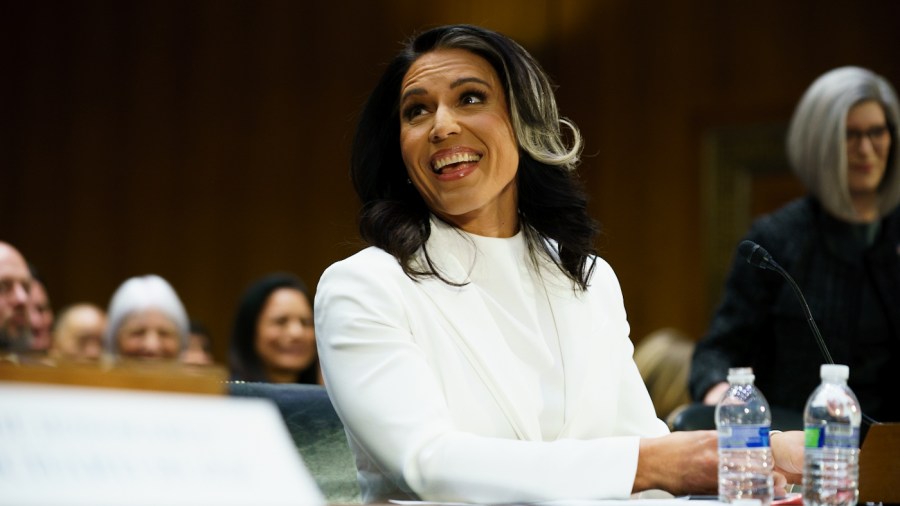Senate Panel Advances Tulsi Gabbard’s Nomination for DNI
The Senate Intelligence Committee has voted to advance former Representative Tulsi Gabbard’s nomination for Director of National Intelligence (DNI), setting the stage for a full Senate confirmation vote. This development marks a crucial step in the controversial nomination process that has divided lawmakers along party lines.
Key Points:
The Senate Intelligence Committee approved Gabbard’s nomination in a closed-door session. Republican support, including endorsements from Senators Susan Collins and Todd Young, was crucial. Democrats remain united in opposition, citing concerns over Gabbard’s past statements and lack of intelligence experience.
Committee Vote Breakdown:
The committee, composed of nine Republicans and eight Democrats, voted to advance Gabbard’s nomination. While the exact vote count has not been disclosed due to the private nature of the session, it’s clear that Republican support was essential for the nomination to move forward.
Republican Support:
Senator Susan Collins (R-ME) announced her support for Gabbard on Monday, stating, “I look forward to working with Ms. Gabbard to strengthen our national security.” Senator Todd Young (R-IN) also declared his backing on Tuesday, citing “extensive conversations” with Vice President JD Vance and written assurances from Gabbard regarding her stance on whistleblowers.
Democratic Opposition:
Democrats on the committee remain united in their opposition to Gabbard’s nomination. Concerns include her perceived lack of intelligence experience and past statements on controversial issues such as the Edward Snowden case.
Key Issues and Controversies:
1. Edward Snowden Controversy: Gabbard’s past support for Edward Snowden has been a significant point of contention. As a congresswoman, she introduced legislation to drop charges against the NSA whistleblower, who remains in Russian exile. During her Senate hearing, Gabbard avoided directly answering whether she considered Snowden a traitor, which failed to satisfy some Republican senators.
2. Intelligence Experience: Critics have questioned Gabbard’s qualifications for the DNI role, given her limited direct experience in the intelligence community. Supporters argue that her military background and time on the House Armed Services Committee provide relevant expertise.
3. Perceived Pro-Russia Stances: Some lawmakers have expressed concern over Gabbard’s past comments perceived as sympathetic to Russia, raising questions about her alignment with US foreign policy.
Next Steps:
With the committee’s approval, Gabbard’s nomination will now proceed to a full Senate vote. Given the narrow margin in the Senate and the controversy surrounding her nomination, the final confirmation vote is expected to be close.
Historical Context:
If confirmed, Gabbard would oversee all 18 US intelligence agencies as DNI. The position was created in the aftermath of the September 11 attacks to improve coordination among intelligence agencies. The role has become increasingly important in recent years, particularly in light of foreign interference in US elections and evolving global security threats.
Broader Implications:
Gabbard’s potential confirmation as DNI comes at a time of heightened political polarization and ongoing debates about the role of intelligence agencies in American democracy. Her unique background as a former Democratic congresswoman nominated by a Republican administration adds an intriguing dimension to these discussions. The outcome of this nomination process could have significant implications for US intelligence policy and operations in the coming years.
As the Senate prepares for a full vote, both supporters and critics of Gabbard will be closely watching the proceedings and their potential impact on national security.









